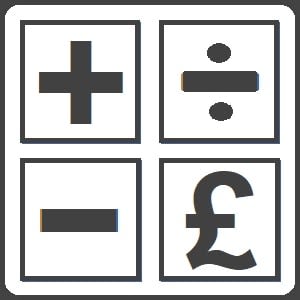Tax Tips for Online Sellers in the UK

Tax Tips for Online Store, eCommerce, Online Seller, Amazon, eBay sellers
Online Seller? What You Need to Know!
- Trading or Capital Gain? If you consistently sell goods or services through an online marketplace, it could be considered a ‘trade’ for UK tax purposes. But fear not! If you’re just decluttering your attic or selling unwanted items from home, you’re unlikely to owe taxes.
- The £1,000 Rule: If your total income from online trading or services was less than £1,000 (before deducting expenses) in any tax year, you’re in the clear. No need to inform HMRC or pay tax on those profits (thanks to the Trading and Miscellaneous Income Allowance).
- Examples Speak Louder:Cash in the Attic: Sally clears out her attic, sells some items online (for less than their original purchase price), and isn’t likely to be trading.
Clothing Reseller: Josh buys and sells clothes consistently, aiming for profits after fees. Yep, he’s trading and should pay tax.
Home-Made Greeting Cards: Gina turns her hobby into a business, selling cards online. Trading? Definitely. Taxable profits? You bet. - Allowed expenses: sole trader businesses can reduce various operating costs as long as these costs are allowable, you can deduct a portion of them on your annual tax return to calculate your taxable profit. HMRC has specified costs and expenses of specific cause, in short solely for business purpose and fulfill its definition can be included. You want to include as much as possible but at the same time include as correctly as possible to avoid any challenges from HMRC.
- Allowances: various allowances for trading costs, vehicles, use of home, necessary equipment and accessories and capital expenses exists, you can use trading allowance and other the tax-free, capital allowance, mileage instead of deducting any fees or other allowances. It can be a long list but you sure would like to utilise to maximum possible.
- Register and Declare: If you make more than £1,000 a year, register with HMRC for self-assessment. File your annual tax return by January 31st. Remember, only your profits are liable for tax.
How To Optimise Your Online Business
Navigating taxes as an online seller doesn’t have to be stressful. At Elaga Accountancy , we specialise in helping eCommerce entrepreneurs stay compliant, claim all eligible expenses, and file Self Assessment with ease. Focus on growing your business—we’ll take care of the numbers.
Need More Info? Reach out anytime! And remember, even if you’re a sole trader, you’re not alone in this tax maze. We have extensive experience in handling various types of sole trading businesses. Contact us for more information.
#TaxTips #OnlineSelling #SoleTrader #SelfAssessment #HMRCGuidance #UKTax #OnlineSeller #eCommerce #AmazonSeller #eBaySeller #SoleTrader #SelfAssessment #TradingAllowance #TaxTips #UKBusiness #HMRC #DigitalBusiness #OnlineBusiness #TaxCompliance #BusinessExpenses
Contact Us
Send a Message
Get in touch to discuss with us how we can best assist you.
